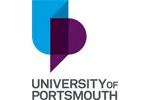We're moving! This site will be relocating to goingto.university in 2026. Please update your bookmarks to the new address.


the United Kingdom
University of Portsmouth| The award | How you will study | Study duration | Course start | Domestic course fees | International course fees |
|---|---|---|---|---|---|
| BA (Hons) | Full-time, Sandwich | 3 - 4 years | September | - | - |
Overview
If you love writing and reporting, our Journalism with Creative Writing degree course can help you turn your abilities with the written word into a fulfilling career.
You'll study, experience, and combine the complementary disciplines of factual journalism and creative writing. One day you might write a news report about a local charity or review a concert, and the next author a short story, a poem, or a play script.
You'll also develop research skills and learn about the structure and mechanisms of the industries you could end up working in – from getting a script approved to legal issues surrounding publishing news stories.
You’ll graduate ready to dive into a career in professional writing, with the skills and knowledge you need to get started in whichever writing field you choose.
Course highlights
Careers and opportunities
As traditional communication and literature move towards web and digital, the demand for journalists and writers is growing. Print newspapers and magazines may be declining, but digital versions are replacing them. In addition, social media, blogging, TV and film production, and other platforms contribute to the demand for journalists and writers. Graduates with strong transferable skills are also sought in related industries such as public relations or communications.
As a graduate, you'll have diverse writing skills that will help you in most sectors.
You can also freelance or pursue postgraduate studies.
Graduate roles
Our graduates have worked in a variety of roles, including:
Below are some suggested courses at other providers that you may also be interested in:
International Human Resource Management MSc
The University of Edinburgh Business School
Find out moreMSc International Business 4.0 - Leading Green & Digital Transformation MSc
ESSCA School of Management – Online Programs
Find out moreConsider a Foundation or Pathway course at University of Portsmouth to prepare for your chosen course:
If you do not meet the entry requirements for this course then consider one of these courses from another institution:
There are 531 other courses listed from University of Portsmouth. A selection of these are displayed below:
Join the StudyLink email list and never miss a chance to turn your study abroad dreams into reality!
